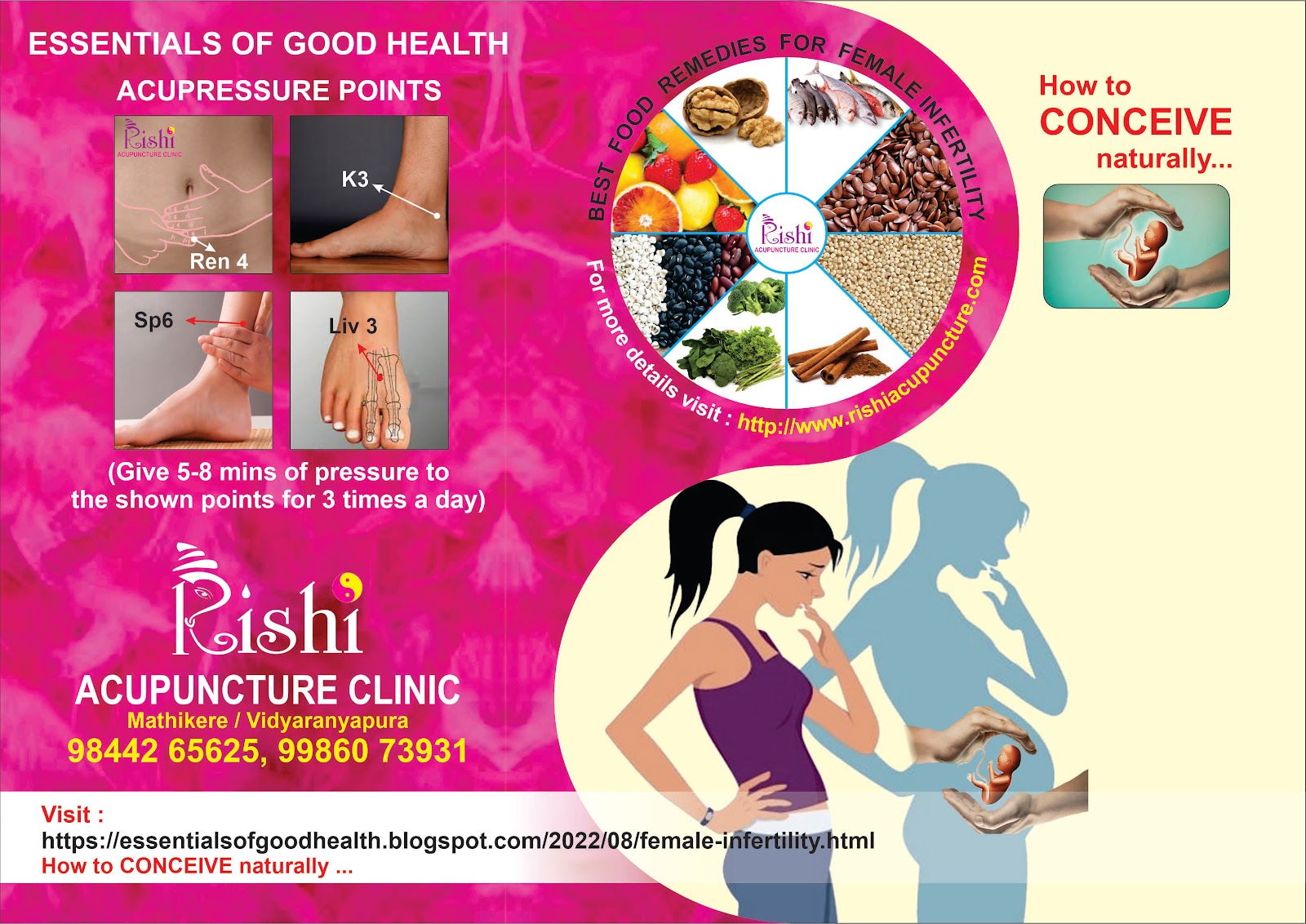FEMALE INFERTILITY
What is infertility?
Infertility is defined as not being able to get pregnant despite of trying frequently for more than a year. Infertility can affect both men and women and in some cases it is self-diagnosable. In many, if the couple is unaware of the reason, doctors can run many different kinds of tests to help determine what might be causing fertility problems for an individual or couple. However, this article focuses on women infertility.
Causes of infertility:
Female infertility is often due to problems with ovulation that may be caused by ovulation disorders like:
- ·
Polycystic ovary syndrome (PCOS)
- ·
Primary ovarian insufficiency (POI)
- · Hyperprolactinemia
Female infertility can also be caused by uterine or cervical abnormalities, fallopian tube damage, uterine fibroids, endometriosis, severe psychological distress etc.
Symptoms:
The main symptom of infertility is the inability to get pregnant. A menstrual
cycle that's too long (35 days or more), too short (less than 21 days),
irregular or absence of menstrual cycle can mean that you're not ovulating.
Tests for women:
Fertility for women relies on the ovaries releasing healthy eggs. The reproductive tract must allow an egg to pass into the fallopian tubes and join with sperm for fertilization. The fertilized egg must travel to the uterus and implant in the lining. Tests for female infertility try to find out if any of these processes are impaired.
Ovulation testing: A blood test measures hormone levels to determine whether you're ovulating or not.
Hysterosalpingography: This evaluates the condition of your uterus and fallopian tubes and looks for blockages or other problems. X-ray contrast is injected into your uterus, and an X-ray is taken to determine if the cavity is normal and to see if the fluid spills out of your fallopian tubes.
Ovarian reserve testing. This testing helps determine the quantity of the eggs available for ovulation. This approach often begins with hormone testing early in the menstrual cycle.
Other hormone testing. Other hormone tests check levels of
ovulatory hormones, as well as pituitary hormones that control reproductive
processes.
Imaging tests. Pelvic ultrasound looks for uterine or ovarian disease. Sometimes a sonohysterogram, also called a saline infusion sonogram, is used to see details inside the uterus that are not seen on a regular ultrasound.
Depending on your situation, rarely your testing may include:
Hysteroscopy. Depending on your symptoms, your doctor may request a hysteroscopy to look for uterine disease. During the procedure, your doctor inserts a thin, lighted device through your cervix into your uterus to view any potential abnormalities.
Laparoscopy. This minimally
invasive surgery involves making a small incision beneath your navel and
inserting a thin viewing device to examine your fallopian tubes, ovaries and
uterus. A laparoscopy may identify endometriosis, scarring, blockages or
irregularities of the fallopian tubes, and problems with the ovaries and
uterus.
Acupuncture Perspective of Female
Infertility:
(Note: Non
acupuncturist can skip this content but please use Acupressure points to avail
health benefits)
Acupuncture recognizes that different energies dominate each
phase of the menstrual cycle. To treat infertility, it is key that we must
understand the characteristics of the menstrual cycle and the Yin-Yang
patterns.
- Kidneys Deficiency: Kidneys house the source of Yin and Yang energy. The physical growth, development and reproduction are based on the Yin and the Yang energy.
- Liver Qi stagnation: Liver Qi stagnation often creates disharmonies in Blood and Qi, which lead to infertility.
- Internal Phlegm and Dampness: Overweigh, too much fatty food could lead to excessive phlegm and dampness, or too much worry, unhealthy food, these injure the Spleen, or excessive Liver Qi that over controls the Spleen, or Kidney Yang deficiency that could not warm the Spleen, Spleen deficiency will lead to improper water transportation, thus turn to Phlegm, Phlegm and Dampness flows downwards to Lower Jiao, stagnate in the Ren and Chong Meridians, Uterus, which then lead to irregular menstruation, and result in Infertility.
- Stagnation in Uterus: After birth, or after menstruation, if the Blood is not “emptied“ from the body as it should, pathogenic Qi could combine with the remaining Blood, block the Chong and the Ren Meridians and resulted in Infertility.
(Give 5-8 mins of pressure to the shown points for 3 times a day)
Home Remedies:
- Omega-3 fatty acids are a type of fat which is very much essential for good ovulation in women and good sperm health in men. Our bodies cannot make omega-3 fatty acids so they must be obtained through diet. Walnuts, flax seeds, sea fish, poppy seeds are rich in Omega 3 fatty acid and good for people who are planning for a baby.
- PCOS, one of the leading causes of infertility, can be combated by the consumption of cinnamon. It helps in the proper functioning of the ovaries by improving the menstrual cycle. Cinnamon can also help treat other factors affecting female fertility such as irregular periods, fibroids in uterus or endometriosis. Consuming a small quantity of cinnamon daily is recommended. The boiled water with cinnamon is easiest way for intake.
- Food rich in folic acid helps in ovulation. Green leafy vegetables, sunflower seeds, fresh fruits, beans, broccoli etc. are rich in folic acid.
Life Style changes recommended:
1.
Meditation helps to relive from stress.
2.
Avoid junk and fatty food
3.
Try to get good and sufficient sleep
4.
Exercise regularly.
5.
Keep yourself happy.
6.
Always try to have good time with your spouse
Disclaimer:
This article is an awareness
initiative taken in public interest. Readers are advised not to use any
information included herein to treat any health problems without knowing the
actual health condition. This article is the combination of theoretical
knowledge, patient’s feedback, self-experience and opinion. We recommend
consulting a Doctor when in doubt or otherwise. We shall not be liable for any
damages arising from the contents of this article.




Comments
Post a Comment